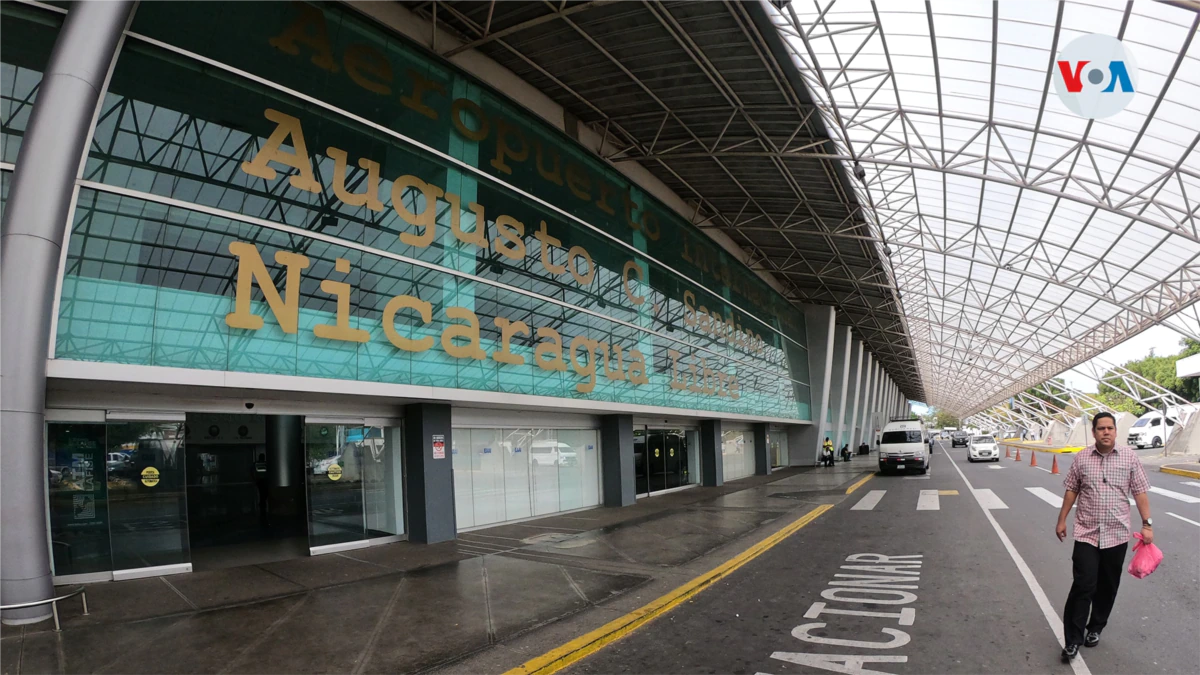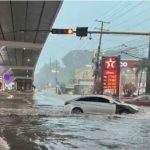Leaving Nicaragua for a meeting with ECLAC in Chile meant exile for the activist and feminist María Teresa Blandón, who, when boarding a plane to return to her destination country, was denied entry.
The airline Avianca informed him that the Government of Nicaragua prohibited him from entering the country, without giving further details, Blandón told the voice of america.
The Nicaraguan government thus seeks to “punish those of us who have denounced the systematic violation of human rights and demand the departure of the Ortega-Murillo regime, and a change of direction for the country,” said the activist, who says she feels exiled and whom months ago the government canceled him the NGO La Corrientewhich led and supported women on sexual and reproductive rights.
In early June, Nicaraguan journalist Tifani Roberts, from the Univisión network, said that she was denied entry to the country when she tried to return to see her family. The airline Avianca told him that the Nicaraguan government had rejected it.
On September 27, the Nicaraguan immigration authorities prohibited the entry into the country of the religious Guillermo Blandón, pastor of a church in Boaco, who was returning from a trip to Israel, and the vice-rector of the Central American University, UCA, Jorge Huete. Blandón is not related to activist María Teresa Blandón.
Journalists, human rights activists, priests and opponents of President Daniel Ortega have denounced that the same prohibition against returning to their own country has been imposed on them, a practice reminiscent of the one used by the Cuban government, an ally of Ortega, as a political weapon, analysts consulted by the VOA.
Carlos Quesada, director of Race and Equality and Human Rights, said that the Cuban government prevents dissidents from entering, and mentioned the example of Ana Ramos, leader of the San Isidro de Cuba movement, whom the island’s authorities did not they allowed him to return after visiting the United States last February.
Journalist Karla Pérez experienced something similar, whose case made headlines when in March 2021 the government of Havana prevented him from entering the island due to his links with opponents. Pérez currently lives in Costa Rica, where he obtained refuge.
The Cuban government also prevented opponent Omara Isabel Ruiz Urquiola, who was undergoing medical treatment in the United States, from returning to the island, the Center for a Free Cuba (CFC) denounced in June. According to the CFC, the opponent arrived at the airport with her documents in order to return to her country and an airline representative told her that she could not board the flight on instructions from Cuba.
According to former Cuban diplomat and historian Guillermo Belt, on the island for years the Communist Party has imposed the practice of not letting in citizens critical of the government. This practice violates a human right, which is the right to nationality and to return to one’s own country, he said.
Returning to their own country “is a right that we all have, and it is not subject to government authorization,” Belt said. “I would say that what Daniel Ortega’s dictatorship in Nicaragua is now putting into practice is very similar to the system that prevails in Cuba,” he said.
Prohibitions to leave the country
In Cuba before an immigration reform of 2012, an application had to be made to travel abroad, which was granted at the discretion of the authorities. Now the island government applies so-called “regulations” to certain citizens, such as military personnel and officials with access to sensitive information, as well as health personnel and other professionals. The “regulated” have to request special permits to leave the country that are not always authorized.
In Nicaragua, the authorities have imposed a similar measure, activists denounced.
Universities must be informed one month in advance about the departure of students and professors from the country, according to a letter from the National Council of Universities addressed to university rectors.
According to the letter, notices of “outings for personal matters, such as tourism, visits to relatives, vacations” of students must be made 30 days in advance.
The measure has been extended to officials and workers of state entities, according to an employee of the Ministry of the Interior who spoke on condition of anonymity.
“We are prohibited from going out, we must thoroughly inform where we are going,” he said.
The Ortega government has not commented on this measure. Nicaraguan immigration and immigration authorities and the office of the vice president did not immediately respond to a request for comment from the voice of america.
[Con la colaboración de la periodista de VOA Yeny García desde Miami]
Connect with the Voice of America! Subscribe to our channel Youtube and turn on notifications, or follow us on social media: Facebook, Twitter and Instagram

















